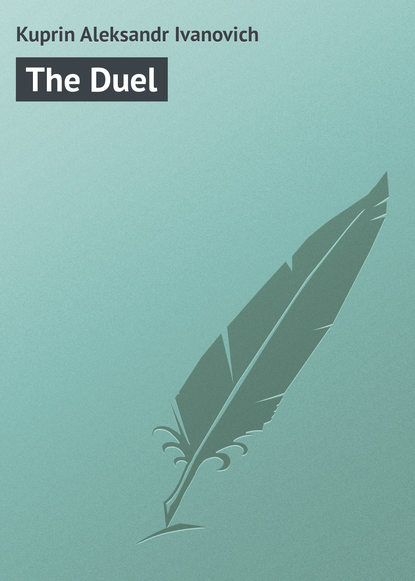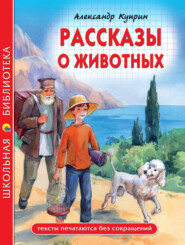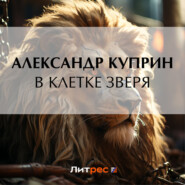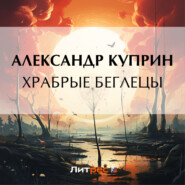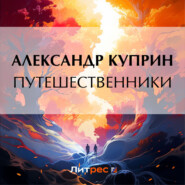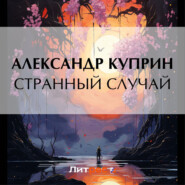По всем вопросам обращайтесь на: info@litportal.ru
(©) 2003-2025.
✖
The Duel
Настройки чтения
Размер шрифта
Высота строк
Поля
Rafalski pointed to a long row of shelves standing along the walls. “Those learned gentlemen write a whole lot of clever things, and show great profundity in their studies. Yes, their learning is absolutely overwhelming. What wonderful scientific instruments, and what acuteness of intellect! But all that is quite different from what I mean. Not one of all these great celebrities has hit upon the idea of observing carefully, only for a single day, for instance, a dog or cat in its private life. And yet how interesting and instructive that is. To watch closely how a dog lives, thinks, intrigues, makes itself happy or miserable. Just think, for example, what all those clowns and showmen can effect. One might sometimes think that one was subjected to an extraordinary hypnosis. Never in all my life shall I forget a clown I saw in the hotel at Kiev – a mere clown. What results might have been attained by a scientifically educated investigator, armed with all the wonderful apparatus and resources of our time! What interesting things one might hear about a dog’s psychology, his character, docility, etc. A new world of marvels would be opened to human knowledge. For my part, you should know that I am quite certain that dogs possess a language and, moreover, a very rich and developed speech.”
“But, Ivan Antonovich, tell me why the learned have never made such an attempt?” asked Romashov.
Rafalski replied by a sarcastic smile.
“He, he, he! the thing is clear enough. What do you suppose a dog is to such a learned bigwig? A vertebrate animal, a mammal, a carnivorous animal, etc, and that’s the end of it. Nothing more. How could he condescend to treat a dog as if it were an intelligent, rational being? Never. No, these haughty university despots are in reality but a trifle higher than the peasant who thought that the dog had steam instead of a soul.”
He stopped short and began snorting and splashing angrily whilst he fussed and fumed with a gutta-percha tube that he was trying to apply to the bottom of the aquarium. Romashov summoned all his courage, made a violent effort of will, and succeeded in blurting out —
“Ivan Antonovich, I have come on an important – very important business – ”
“Money?”
“Yes, I am ashamed to trouble you. I don’t require much – only ten roubles – but I can’t promise to repay you just yet.”
Ivan Antonovich pulled his hands out of the water and began slowly to dry them on a towel.
“I can manage ten roubles – I have not more, but these I’ll lend you with the greatest pleasure. You’re wanting to be off, I suppose, on some spree or dissipation? Well, well, don’t be offended; I’m merely jesting. Come, let us go.”
“Colonel Brehm” took Romashov through his suite of apartments, which consisted of five or six rooms, in which every trace of furniture and curtains was lacking. Everywhere one’s nose was assailed by the curious, pungent odour that is always rife in places where small animals are freely allowed to run riot. The floors were so filthy that one stumbled at nearly every step. In all the corners, small holes and lairs, formed of wooden boxes, hollow stubble, empty casks without bottoms, etc., etc., were arranged. Trees with bending branches stood in another room. The one room was intended for birds, the other for squirrels and martens. All the arrangements witnessed to a love of animals, careful attention, and a great faculty for observation.
“Look here,” Rafalski pointed to a little cage, surrounded by a thick railing of barbed wire; from the semicircular opening, which was no larger than the bottom of a drinking-glass, glowed two small, keen black eyes. “That’s a polecat, the cruellest and most bloodthirsty beast in creation. You may not believe me, but it’s none the less true, that, in comparison with it, the lion and panther are as tame as lambs. When a lion has eaten his thirty-four pounds or so of flesh, and is resting after his meal, he looks on good-humouredly at the jackals gorging on the remains of the banquet. But if that little brute gets into a hen-house it does not spare a single life. There are no limits to its murderous instinct, and, besides, it is the wildest beast in the world and the one hardest to tame. Fie, you little monster.”
Rafalski put his hand behind the bars, and at once, in the narrow outlet to the cage, an open jaw with sharp, white teeth was displayed. The polecat accompanied its rapid movements backwards and forwards by a spiteful, cough-like sound.
“Have you ever seen such a nasty brute? And yet I myself have fed it every day for a whole year.”
“Colonel Brehm” had now evidently forgotten Romashov’s business. He took him from cage to cage, and showed him all his favourites, and he spoke with as much enthusiasm, knowledge, and tenderness of the animals’ tempers and habits, as if the question concerned his oldest and most intimate friends. Rafalski’s collection of animals was really an extraordinarily large and fine one for a private individual to own, who was, moreover, compelled to live in an out-of-the-way and wretched provincial hole. There were rabbits, white rats, otters, hedgehogs, marmots, several venomous snakes in glass cases, ant-bears, several sorts of monkeys, a black Australian hare, and an exceedingly fine specimen of an Angora cat.
“Well, what do you say to this?” asked Rafalski, as he exhibited the cat. “Isn’t he charming? And yet he does not stand high in my favour, for he is awfully stupid – much more stupid than our ordinary cats.” Rafalski then exclaimed hotly: “Another proof of the little we know and how wrongly we value our ordinary domestic animals. What do we know about the cat, horse, cow, and pig? The pig is a remarkably clever animal. You’re laughing, I see, but wait and you shall hear.” (Romashov had not shown the least signs of amusement.) “Last year I had in my possession a wild boar which invented the following trick. I had got home from the sugar factory four bushels of waste, intended for my pigs and hot-beds. Well, my big boar could not, of course, wait patiently. Whilst the foreman went to find my servant, the boar with his tusks tore the bung out of the cask, and, in a few seconds, was in his seventh heaven. What do you say of a chap like that? But listen further” – Rafalski peered out of one eye, and assumed a crafty expression – “I am at present engaged in writing a treatise on my pigs – for God’s sake, not a whisper of this to any one. Just fancy if people got to hear that a Lieutenant-Colonel in the glorious Russian Army was writing a book, and one about pigs into the bargain; but the fact is, I managed to obtain a genuine Yorkshire sow. Have you seen her? Come, let me show you her. Besides, I have down in the yard a young beagle, the dearest little beast. Come!”
“Pardon me, Ivan Antonovich,” stammered Romashov, “I should be only too pleased to accompany you, but – but I really haven’t the time now.”
Rafalski struck his forehead with the palm of his hand.
“Oh, yes, what an incorrigible old gossip I am. Excuse me – I’ll go and get it – come along.”
They went into a little bare room in which there was literally nothing but a low tent-bedstead which, with its bottom composed of a sheet hanging down to the floor, reminded one of a boat; a little night-table, and a chair without a back. Rafalski pulled out a drawer of the little table and produced the money.
“I am very glad to be able to help you, ensign, very glad. If you please, no thanks or such nonsense. It’s a pleasure, you know. Look me up when convenient, and we’ll have a chat. Good-bye.”
When Romashov reached the street, he ran into Viätkin. Pavel Pavlich’s moustaches were twisted up ferociously, à la Kaiser, and his regimental cap, stuck on one side in a rakish manner, lay carelessly thrown on one ear.
“Ha, look at Prince Hamlet,” shouted Viätkin, “whence and whither? You’re beaming like a man in luck.”
“Yes, that’s exactly what I am,” replied Romashov smilingly.
“Ah-ah! splendid; come and give me a big hug.”
With the enthusiasm of youth, they fell into each other’s arms in the open street.
“Ought we not to celebrate this remarkable event by just a peep into the mess-room?” proposed Viätkin. “‘Come and take a nip in the deepest loneliness,’ as our noble friend Artschakovski is fond of saying.”
“Impossible, Pavel Pavlich, I am in a hurry. But what’s up with you? You seem to-day as if you meant kicking over the traces?”
“Yes, rather, that’s quite on the cards,” Viätkin stuck his chin out significantly. “To-day I have brought off a ‘combination’ so ingenious that it would make our Finance Minister green with envy.”
“Really?”
Viätkin’s “combination” appeared simple enough, but testified, however, to a certain ingenuity. The chief rôle in the affair was played by Khaim, the regimental tailor, who took from Pavel Pavlich a receipt for a uniform supposed to have been delivered, but, instead of that, handed over to Viätkin thirty roubles in cash.
“The best of it all is,” exclaimed Viätkin, “that both Khaim and I are equally satisfied with the deal. The Jew gave me thirty roubles and became entitled through my receipt to draw forty-five from the clothing department’s treasury. I am at last once more in a position to chuck away a few coppers at mess. A masterstroke, eh?”
“Viätkin, you’re a great man, and another time I’ll bear in mind your ‘patent.’ But good-bye for the present. I hope you will have good luck at cards.” They separated, but, after a minute, Viätkin called out to his comrade again. Romashov stopped and turned round.
“Have you been to the menagerie?” asked Viätkin, with a cunning wink, making a gesture in the direction of Rafalski’s house.
Romashov replied by a nod, and said in a tone of conviction, “Brehm is a downright good fellow – the best of the lot of us.”
“You’re right,” agreed Viätkin, “bar that frightful smell.”
XII
WHEN Romashov reached Nikoläiev’s house about five o’clock, he noticed with surprise that his happy humour of the morning and confidence that the day would be a success had given place to an inexplicable, painful nervousness. He felt assured that this nervousness had not come over him all at once, but had begun much earlier in the day, though he did not know when. It was likewise clear to him that this feeling of nervousness had gradually and imperceptibly crept over him. What did it mean? But such incidents were not new to him; even from his early childhood he had experienced them, and he knew, too, that he would not regain his mental balance until he had discovered the cause of the disturbance. He remembered, for instance, how he had worried himself for a whole day, and that it was not till evening that he called to mind that, in the forenoon, when passing a railway crossing, he had been startled and alarmed by a train rushing past, and this had disturbed his balance. Directly, however, the cause was discovered he at once became happy and light-hearted. The question now was to review in inverted order the events and experiences of the day. Svidierski’s millinery shop and its perfumes; the hire and payment of Leib, the best cab-driver in the town; the visit to the post-office to set his watch correctly; the lovely morning; Stepan? No, impossible. In Romashov’s pocket lay a rouble laid by for him. But what could it be then?
In the street, opposite to the Nikoläievs’, stood three two-horse carriages, and two soldiers held by the reins a couple of saddle-horses – the one, Olisár’s, a dark-brown old gelding, newly purchased from a cavalry officer; the other Biek-Agamalov’s chestnut mare, with fierce bright eyes.
“I know! The letter!” flashed through Romashov’s brain. That strange expression “in spite of that” – what could it mean? That Nikoläiev was angry or jealous? Perhaps mischief had been made. Nikoläiev’s manner had certainly been rather cold lately.
“Drive on!” he shouted to the driver.
At that moment, though he had neither seen nor heard anything, he knew that the door of the house had opened, he knew it by the sweet and stormy beating of his heart.
“Romochka! where are you going?” he heard Alexandra Petrovna’s clear, happy voice behind him.
Romashov, by a strong pull, drew the driver, who was sitting opposite him, back by the girdle, and jumped out of the fly. Shurochka stood in the open door as if she were framed in a dark room. She wore a smooth white dress with red flowers in the sash. The same sort of red flowers were twined in her hair. How wonderful! Romashov felt instantly and infallibly that this was she, but, nevertheless, did not recognize her. To him it was a new revelation, radiant and in festal array.
While Romashov was mumbling his felicitations, Shurochka forced him, without letting go his hands, softly and with gentle violence, to enter the gloomy hall with her. At the same time she uttered half-aloud, in a hurried and nervous tone —
“Thanks, Romochka, for coming. Ah, how much I was afraid that you would plead some excuse! But remember now, to-day you are to be jolly and amiable. Don’t do anything which will attract attention. Now, how absurd you are! Directly any one touches you, you shrivel up like a sensitive-plant.”
“Alexandra Petrovna, your letter has upset me. There is an expression you make use of…”
“My dear boy! what nonsense!” she grasped both his hands and pressed them hard, gazing into the depths of his eyes. In that glance of hers there was something which Romashov had never seen before – a caressing tenderness, an intensity, and something besides, which he could not interpret. In the mysterious depths of her dark pupils fixed so long and earnestly on him he read a strange, elusive significance, a message uttered in the mysterious language of the soul.
“Please – don’t let us talk of this to-day! No doubt you will be pleased to hear that I have been watching for you. I know what a coward you are, you see. Don’t you dare to look at me like that, now!”
She laughed in some confusion and released his hands.





